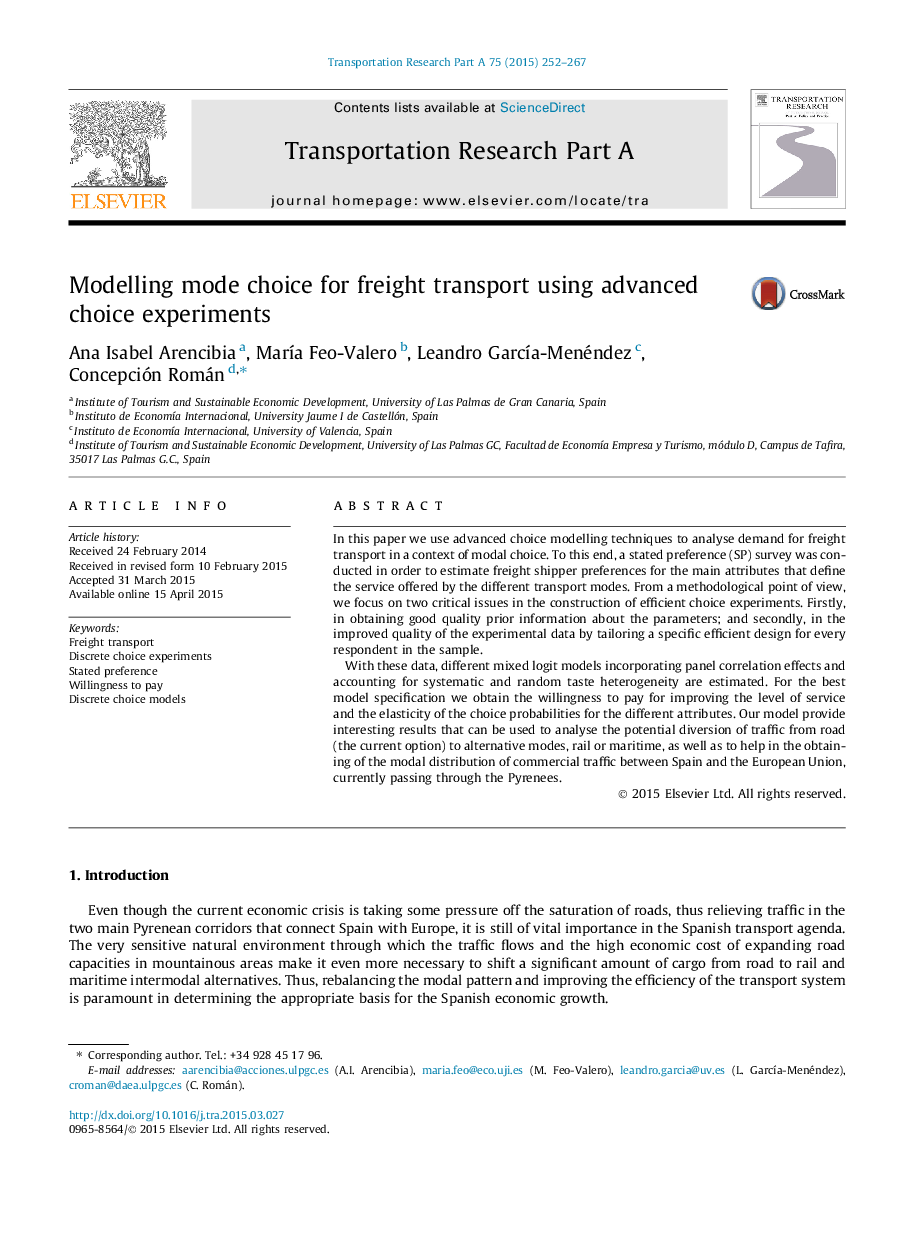| Article ID | Journal | Published Year | Pages | File Type |
|---|---|---|---|---|
| 310447 | Transportation Research Part A: Policy and Practice | 2015 | 16 Pages |
•Advanced choice experiments are used to analyse modal choice for freight transport.•Prior information is used to create a specific design for every respondent.•Freight shipper preferences for the main attributes are analysed.•Panel correlation effects and systematic taste heterogeneity are studied.•Willingness to pay figures and elasticity values are calculated.
In this paper we use advanced choice modelling techniques to analyse demand for freight transport in a context of modal choice. To this end, a stated preference (SP) survey was conducted in order to estimate freight shipper preferences for the main attributes that define the service offered by the different transport modes. From a methodological point of view, we focus on two critical issues in the construction of efficient choice experiments. Firstly, in obtaining good quality prior information about the parameters; and secondly, in the improved quality of the experimental data by tailoring a specific efficient design for every respondent in the sample.With these data, different mixed logit models incorporating panel correlation effects and accounting for systematic and random taste heterogeneity are estimated. For the best model specification we obtain the willingness to pay for improving the level of service and the elasticity of the choice probabilities for the different attributes. Our model provide interesting results that can be used to analyse the potential diversion of traffic from road (the current option) to alternative modes, rail or maritime, as well as to help in the obtaining of the modal distribution of commercial traffic between Spain and the European Union, currently passing through the Pyrenees.
